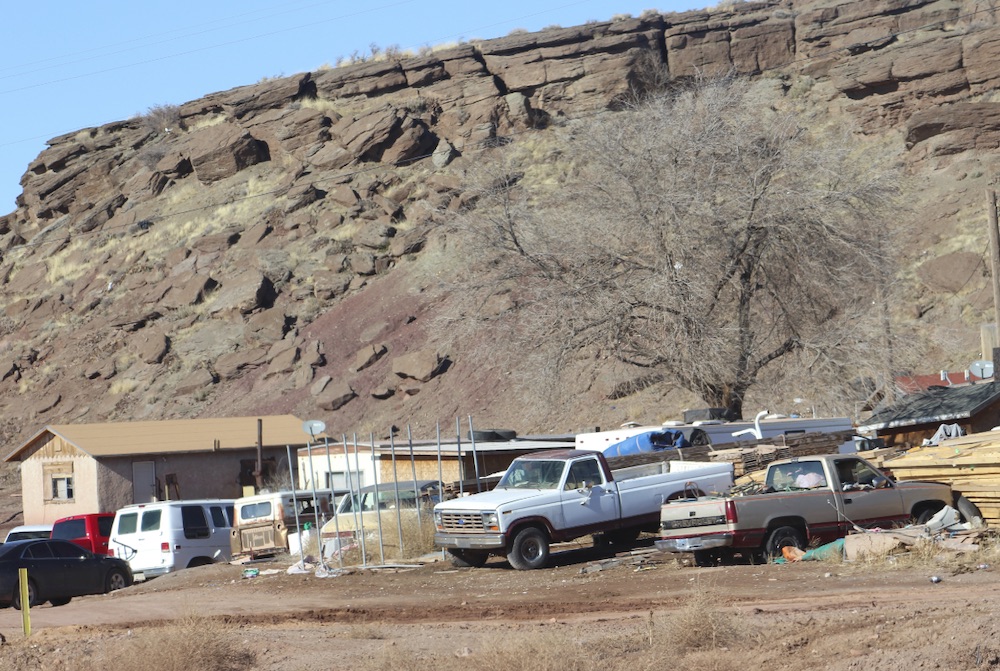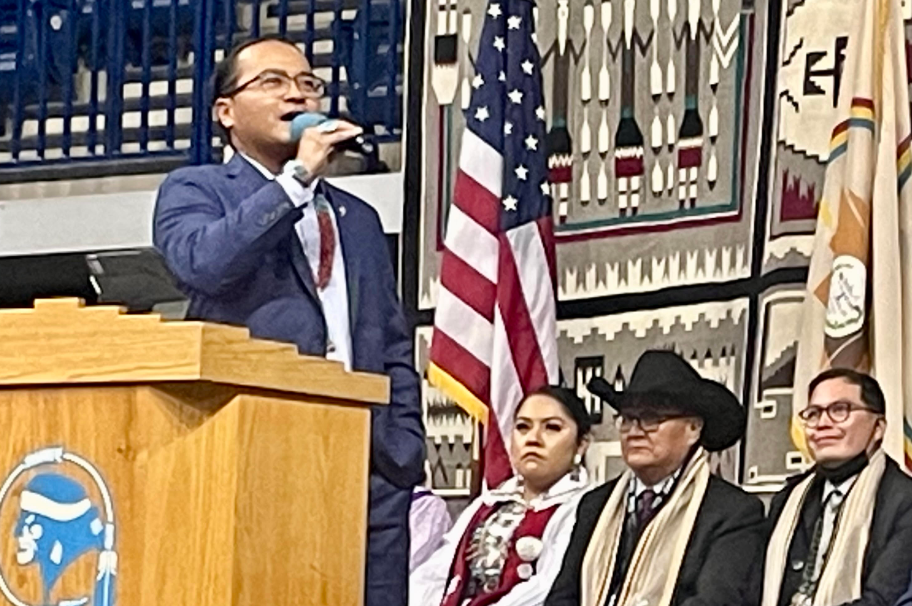
- Details
- By Levi Rickert
Opinion. Citing treaties that date back to 1849 and 1868, the Navajo Nation on Monday morning will argue in the U.S. Supreme Court that it should be granted access to water from the Colorado River.
The Colorado River serves some 40 million people spread across seven states and some tribal communities along its 1,450 miles-long river. Some of America’s largest cities receive their drinking water from the Colorado River, including Denver, Phoenix, Albuquerque, Salt Lake City, and Los Angeles.
It’s water that is needed for tribal citizens, businesses, farms, and ranches.
Some 30 percent of residents on the Navajo Nation do not have access to safe drinking water. Farmers, ranchers, and other businesses are limited in their ability to grow.
RELATED: SCOTUS Hears Arguments in Navajo Nation Water Rights Case
“The result was the 1868 Treaty, which established the Navajo Reservation and promised opportunities and tools for farming and funds for thousands of animals to replenish the Navajo herds,” the Navajo Nation argues in its court brief. “The Treaty, in short, promised both land and water sufficient for the Navajos to return to a permanent home in their ancestral territory.”
Monday’s hearing comes after decades of efforts by the Navajo Nation to obtain adequate water. That came to a head on the heels of a 2021 ruling by the 9th Circuit Court panel that the Navajo Nation should be able to proceed with its complaint that alleges breach of trust against the United States.
When asked during an interview with Native News Online last Thursday to comment on Monday’s Supreme Court hearing, the newly inaugurated Navajo Nation President Buu Nygren said that he always thinks in terms of bringing things back to the basics—meaning the foundational issues. In this case, Nygren was referring to the treaties made by the United States and the Navajo Nation.
“The Supreme Court needs to honor our treaty rights and honor Navajo people. Our leaders and their leaders agreed that both nations wanted to be prosperous. We all want to develop, we all want what's best for our children, Whether you're the United States government or Navajo Nation, you want what's best for your kids.”
Obviously, having enough water for children is one of the basics for sustainability of life for adults and children.
The anthem of the Standing Rock resistance against the construction of the Dakota Access pipeline through the Missouri River in the ancestral boundaries of the Standing Rock Sioux Tribe was Mní Wičón–or Water is Life. The anthem is consistent with the biological need of water to sustain life and traditional worldview of Indigenous people.
President Nygren says he wants to see the Navajo Nation flourish. He said he looks around and sees states like Arizona, New Mexico, Utah, and Colorado all flourishing.

In his inaugural address in January, Nygren said he wants to fix infrastructure needs, such as roads, on the Navajo Nation. He sees access to water as a necessity for economic growth.
“We want to economically grow the Navajo Nation. And the Navajo Nation is behind. I'm the one over here, begging to try to put water lines in and I'm begging to try to work with the government. I'm begging to try to use their own lands to develop their own gravel pits and I'm begging to have them clean up uranium mines that they should have cleaned up in the first place.
“To me, everything that we need to do as a nation requires water. From water comes economic development and getting the basic things because building roads takes water. Farming takes water. Making sure that people can cleanse themselves and survive takes a lot of water,” Nygren said.
He says the decades-long battle to secure water is incumbent on the federal government to fulfill treaties.
“So to me, it's in their ballcourt to make sure they honor the initial agreement back in the 1800s.They wanted the same thing. And let's live in this area together and be Americans,” he said.
“On the Navajo Nation, we’re finally coming of age to where we've got our own engineers, attorneys, architects, high-end farmers. We are really trying to move ourselves forward and for them to kind of hold something in front of us with our water rights, to me, it’s not right. I say: ‘Now honor what you've promised us a long time ago.’” Nygren continued.
The fact that in 2023 one-third of the Navajo Nation citizens don’t have running and safe drinking water is equivalent to people who live in third world countries. During the COVID-19 pandemic, the Navajo Nation was severely hit with approximately 2,000 deaths. This happened when Americans were told to wash their hands for 20 seconds. Sadly, for many Navajo citizens they did not have 20 seconds worth of water to wash their hands.
Instead of fighting the Navajo Nation in the Supreme Court, federal officials should have been developing plans to alleviate the third world living conditions.
Since the case is moving forward today, I pray the justices do the right thing and rule in favor of the Navajo Nation so that Navajo leaders like President Nygren don’t have to beg for basic necessities of life.
Mní Wičón–Water is Life.
Thayék gde nwéndëmen - We are all related.
More Stories Like This
The SAVE America Act Threatens Native Voting Rights — We Must Fight BackThe Presidential Election of 1789
Cherokee Nation: Telling the Full Story During Black History Month
Jesse Jackson Changed Politics for the Better
Native News Online at 15: Humble Beginnings, Unwavering Mission
Help us defend tribal sovereignty.
At Native News Online, our mission is rooted in telling the stories that strengthen sovereignty and uplift Indigenous voices — not just at year’s end, but every single day.
Because of your generosity last year, we were able to keep our reporters on the ground in tribal communities, at national gatherings and in the halls of Congress — covering the issues that matter most to Indian Country: sovereignty, culture, education, health and economic opportunity.
That support sustained us through a tough year in 2025. Now, as we look to the year ahead, we need your help right now to ensure warrior journalism remains strong — reporting that defends tribal sovereignty, amplifies Native truth, and holds power accountable.
 The stakes couldn't be higher. Your support keeps Native voices heard, Native stories told and Native sovereignty defended.
The stakes couldn't be higher. Your support keeps Native voices heard, Native stories told and Native sovereignty defended.
Stand with Warrior Journalism today.
Levi Rickert (Potawatomi), Editor & Publisher


